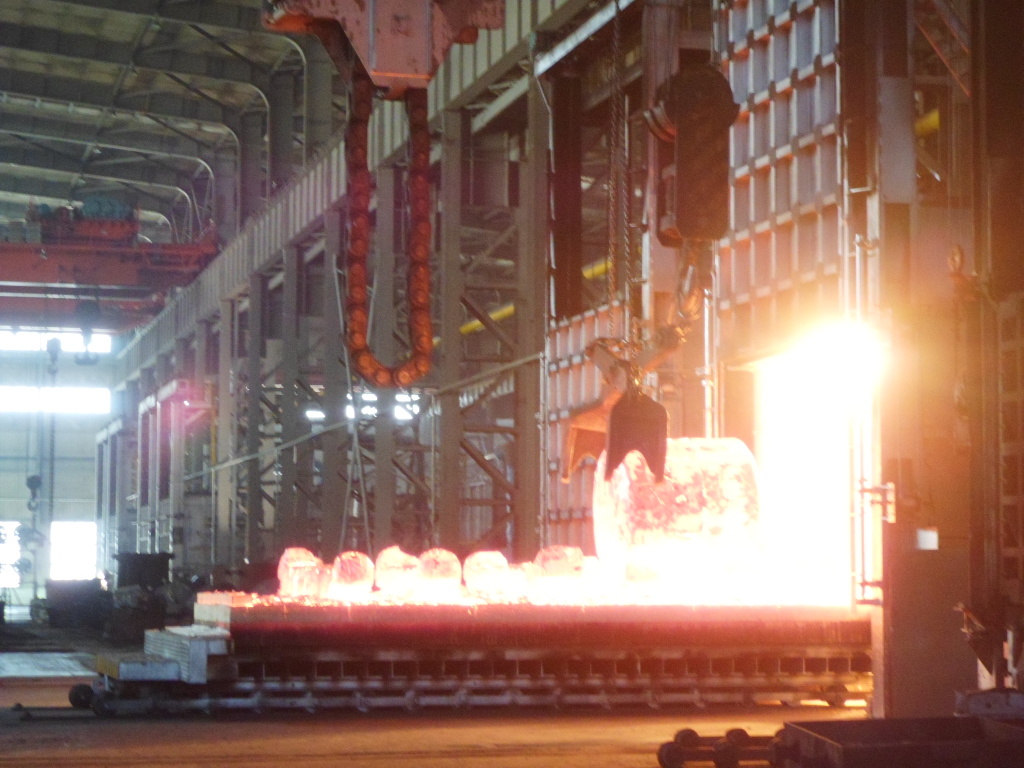Understanding Steel Quenching Furnaces: Key Insights for Industrial Applications
Steel quenching furnaces are essential in the heat treatment processes of steel and other alloys, enabling the transformation of mechanical properties essential for various industrial applications. These furnaces are specially designed to cool heated metal parts rapidly in a controlled manner, thereby increasing hardness and strength through a process known as quenching. One of the primary functi
Understanding the Integral Role of Forging and Casting Furnaces in Modern Manufacturing Processes
Understanding the Integral Role of Forging and Casting Furnaces in Modern Manufacturing Processes Table of Contents 1. Introduction to Forging and Casting Furnaces 2. The Importance of Forging and Casting in Metalworking 3. Types of Forging and Casting Furnaces 3.1 Electric Arc Furnaces 3.2 Induction Furnaces 3.3 Cupola Furnaces 3.4 Reverbatory Furnaces 4. The Operational Mechanism of Furnaces 5.
The Essential Guide to Forging and Casting Industrial Furnaces
Forging and casting are two fundamental processes in metallurgy that rely heavily on industrial furnaces. Understanding these processes and the furnaces that facilitate them is essential for any industrial operation aiming to enhance efficiency, quality, and production capacity. Industrial furnaces used for forging and casting are designed to provide precise temperature control, uniform heat distr
Unlocking Efficiency: The Advantages of Electric Furnaces with Silicon Carbide Heating Elements
Unlocking Efficiency: The Advantages of Electric Furnaces with Silicon Carbide Heating Elements Table of Contents 1. Introduction to Electric Furnaces 2. What are Silicon Carbide Heating Elements? 3. Benefits of Electric Furnaces 3.1 Enhanced Energy Efficiency 3.2 Consistent Temperature Control 3.3 Reduced Environmental Impact 4. Why Choose Silicon Carbide Heating Elements? 4.1 High Thermal Conduc
Understanding Large Component Furnaces: Key Insights for the Industrial Sector
Large component furnaces are specialized industrial ovens designed to accommodate the demanding requirements of casting and heat treatment processes. These furnaces are crucial in various industries, including steel manufacturing, aerospace, and automotive, where large metal components need precise heating and cooling treatments. One of the primary functions of a large component furnace is to prov
Understanding the Importance of a Shipbuilding Heat Treatment Furnace in Modern Manufacturing
Understanding the Importance of a Shipbuilding Heat Treatment Furnace in Modern Manufacturing Table of Contents Introduction to Heat Treatment in Shipbuilding The Role of Heat Treatment Furnaces in Shipbuilding Types of Heat Treatment Processes in Marine Applications Benefits of Using Heat Treatment Furnaces Technological Advancements in Heat Treatment Furnaces Safety Cons
How to Improve Metal Processing Accuracy and Efficiency Through Durable Precision Forging Furnace
Durable Precision Forging Furnace not only provides a uniform heating effect but also reaches the required temperature peak in a very short time, greatly improving production efficiency
Introducing the New Car-Bottom Annealing Furnace with Octagonal Cross-Section Furnace Chamber
With the ongoing development of the economy and the deepening of industrial and social progress, the demands on heat treatment equipment, workpiece quality, energy supply, and environmental regulations are becoming more stringent. These factors have led to the evolution of industrial car-bottom furnaces towards larger sizes, higher load capacities, lower energy consumption, higher efficiency, better quality, and increased automation.
While small box-type electric furnaces with silicon carbide heating elements are common in the market, medium and large chamber and car-bottom furnaces remained unavailable until 2019. That year, our company introduced the world’s first car-bottom electric furnace with silicon carbide heating elements, featuring a loading capacity of 50 tons. Over the past two years, we have designed and manufactured models with capacities of 70 tons, 100 tons, and 150 tons for various clients. Currently, our car-bottom furnaces can handle up to 700 tons. Additionally, we have developed innovative dual-chamber and multi-chamber structures for small and medium box (or chamber)-type electric furnaces.



